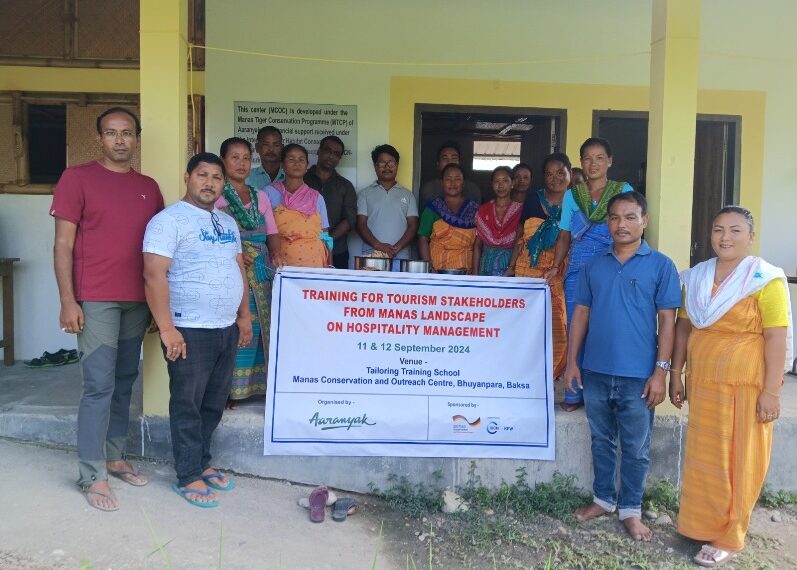GUWAHATI: Aaranyak, a leading biodiversity conservation organization, recently conducted a two-day hospitality management training programme for stakeholders from the Manas Landscape in Assam.
The training aimed to equip homestay owners and catering groups from Majrabari, Rangapani and Daodhara villages with essential skills to enhance their services to tourists.
The training programme was organised at Aaranyak’s Manas Conservation and Outreach Centre, located at Bhuyanpara in Assam‘s Baksa on September 11 and 12.
The programme covered various aspects of hospitality, including room management, kitchen management, guest service, sustainable cooking, hygiene, and meal preparation.
Resource person Rehan Ali from IORA Retreat and Puneswar Dadhara from Aranya Lodge in Kohora, shared their expertise with participants from Majrabari, Rangapani, and Daodhara villages.
A key focus of the training was on preparing traditional and non-traditional delicacies.
Participants actively engaged in practical sessions, learning to cook and serve authentic dishes.
Resource person Rehan Ali emphasized the importance of offering traditional cuisine to attract tourists seeking authentic experiences.
Beyond food, the training also covered essential aspects of hospitality, such as room management and bed-making. Participants learned practical skills under the guidance of experts.
Rahul Basumatary, a homestay owner from Rangapani, expressed gratitude for the training, stating that it had provided valuable insights into managing his homestay.
Aaranyak’s initiative aligns with its commitment to supporting indigenous communities and promoting sustainable livelihoods.
ALSO READ: Aaranyak empowers rural women in Assam’s Karbi Anglong with food processing skills
“Alternative livelihood practices by communities residing in close proximity to key wildlife habitats allow them to augment their livelihood,” said Aaranyak.
By equipping forest-fringe communities with hospitality skills to cater to nature enthusiasts, Aaranyak aims to empower them to participate in community-based nature tourism and supplement their income while contributing to conservation efforts.















